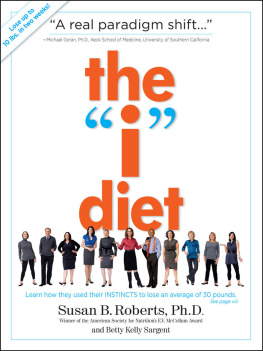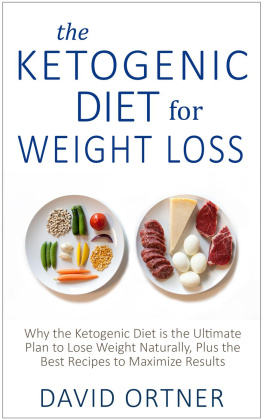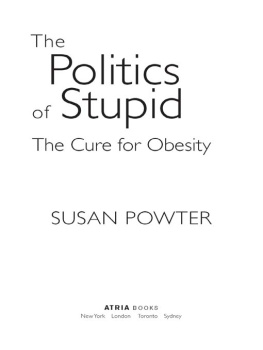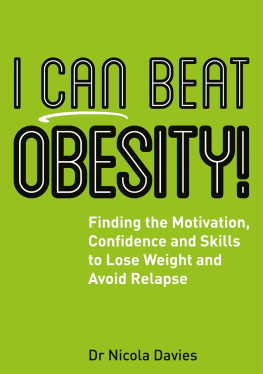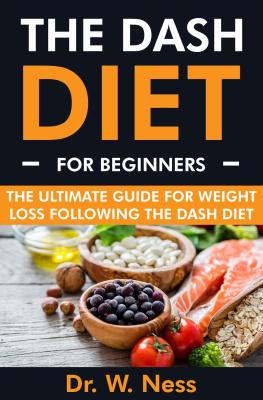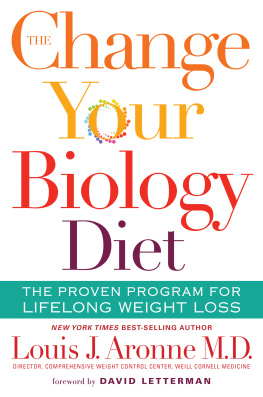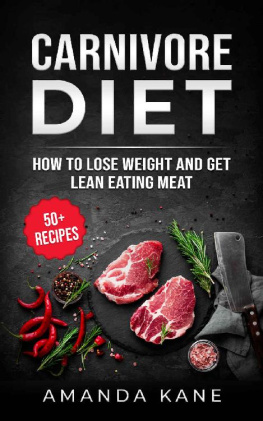the i diet
Use Your Instincts to Lose Weightand Keep It OffWithout Feeling Hungry
Susan B. Roberts, Ph.D.
Winner of the American Society for Nutritions E.V. McCollum Award
and Betty Kelly Sargent
WORKMAN PUBLISHING NEW YORK
For John and Diana, and all the research volunteers Ive had the privilege of working with over the years at Tufts and M.I.T., and research volunteers everywhere who selflessly give of themselves so that nutrition science can advance S.B.R.
For Elizabeth, James, Izabela and Xavy B.K.S.
Contents
PART I
The Big Picture
PART II
The Program
PART III
The Recipes
Success!
A Preface to the New Edition
The publication of the original Instinct Diet was a watershed moment for me. After 17 years of exacting, often challenging (and sometimes tedious) weight-loss research in my lab at Tufts University, I was convinced that I could give people a better way to lose weightand really, truly keep it offthan they could find in other diets. And by helping others with a problem I had struggled with myself, I was also hoping to heal the wounds of my own painful history.
Heres the backstory: I grew up in England in a family that loved food. My parents were overweight, so were most of my siblings and so was I. To make matters worse, I was also the kid who came in last at every track meet, the adolescent with the tummy, the girl who always looked just a little bit different. Then, in my teens, I got sick with mononucleosis. Illness is not a weight-loss method Id ever recommend, but I would be lying if I didnt admit I was thrilled that my recovery was accompanied by the loss of all those extra pounds. No surprise, keeping the weight off after I got my health back was a real challenge, especially since I was working part-time as a chef. When it was time for college, I decided to major in nutrition, and it was always the obesity lectures that interested me most.

Adena,

Alicia,

Dave,

Maria,

Niki,
After graduation, I did research in Africa and then returned to the University of Cambridge to earn my Ph.D. in nutrition. It was there that I met my wonderful husband, John. When he was offered a position at Harvard Medical School (where hes now a professor of cell biology) and I was invited to M.I.T., we moved to Boston. What a great decision that turned out to be! I had landed in the center of nutrition research in the United States. And the Tufts Human Nutrition Research Center, which I moved to soon afterwards, is the epicenter of it all.

Toni,

Alice,

Aleks,

Kelly,
It was at Tufts that I started my weight-control research program on obesity, as well as on protein, carbohydrates, fat, the Glycemic Index, fiber and everything else I could think of. After publishing nearly 200 scientific papers and reading several thousand research papers by other scientists, I realized something essential. All the studies agreed that five things affect our eating behavior: hunger, the availability of food, the variety of food, the familiarity of food and how rich or calorie-dense the food is. The consistency of the findings was startling, since most topics in nutrition have as many opinions written about them as there are scientists writing them. Not here. There was striking agreement that these five variables have predictable effects on what and how much we eat and what we enjoy. And then I had my own eureka momentthese are our basic food instincts. I knew I was onto something and went about proving I was right by focusing my research on the five instinctswhy we have them, how they work, how we can use them to control our weight. And so the Instinct Diet began to take shape.

Dr. Roberts
My Big Dream
Over the years, I saw volunteers in my lab achieve amazing results. They lost up to 50 pounds, without any additional exercise or drugs. They experienced minimal weight regain after a year. They saw great health improvements, most notably substantial decreases in cholesterol levels and blood pressure. But the most important outcome was that they felt great. They would chatter on about how happy they were, wondering aloud what the magic of the diet was. I knew the only magic was our own biology and realized that it was now time to write a book. I wanted people everywhere to learn what I had learned, to benefit from what I had seen in my lab and to experience that sense of magic firsthand.
That was my dream: pretty big stuff, I thought. But the reality of publishing the book was much more exciting. I had decided not to limit its scope to my lab research, but to take the best from my program and merge it with the very best stuff from other research worldwide. And I discovered that the I Diet (thats what everyone calls it) works even better than I had predicted; indeed, people who followed the program were getting results more remarkable than those I had observed in my lab. Instead of losing 4 pounds in two weeks, dieters were losing an average of 7 pounds and in some cases as many as 10. And rather than shedding 10 to 15 pounds in eight weeks, the I dieters were losing 16 pounds on average and sometimes 20 pounds or more.
As the success stories poured in, I came to realize the import of what was happening. I had known that my diet would workits based on the very best science and it delivers real resultsbut it does it so much faster and with much less hunger and better craving control than I had ever imagined. Meaning? The I Diet is actually a healthy crash diet; if you follow it, you will lose weight and fat as fast as is humanly possible without in any way compromising your health. And if you make this way of eating part of your life, you will keep that weight and fat off forever. Of course, you dont have to lose weight as fast as possible. The great thing about a diet that actually works and produces rapid weight loss if you follow it to the letter is that you can, if you prefer, follow it at a leisurely pace for reliable slow weight loss.

